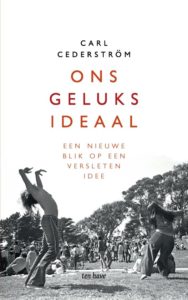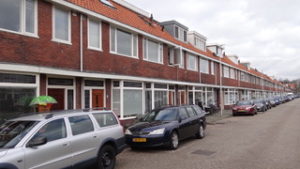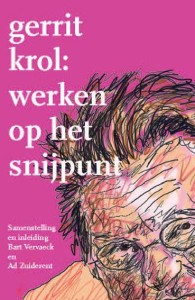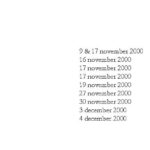Trump’s 2020 Budget Rewards The Wealthiest Individuals

Gerald Epstein is Professor of Economics and a founding Co-Director of the Political Economy Research Institute (PERI) at the University of Massachusetts, Amherst.
Donald Trump’s 2020 budget proposal represents the wildest version of neoliberalism yet. It is just the latest evidence that the United States has become a plutocracy run by an oligarchical elite bent on destroying the last vestiges of a democratic polity.
Trump’s fiscal budget proposal threatens to exacerbate all of the major problems facing the U.S. economy and society today “in order to fund more goodies for the wealthy,” according to radical political economist Gerald Epstein. In this interview with Truthout, Epstein — the co-director of the Political Economy Research Institute and a professor of economics at the University of Massachusetts at Amherst — discusses why the Trump budget proposal is a blatant power grab, why we need to think about economics beyond GDP growth, and why the U.S. government is incurring more debt that does not even begin to address the problems the country faces.
C.J. Polychroniou: Trump’s fiscal 2020 budget proposal, which has been quite fittingly proposed by some critics as “a budget for a sick and declining America,” includes major cuts across all programs and agencies with the exception of the military, which receives additional increases for defense spending. In your view, what’s the logic driving this budget proposal, and what would be the likely consequences for U.S. society and economy if it were to be implemented?
Gerald Epstein: Let me start with the latter part of your question by saying that, if Trump’s fiscal 2020 budget proposal were to be implemented, the consequences would be simply disastrous. Indeed, the Center on Budget and Policy Priorities (CBPP), a reliable source of information on federal budget and tax policy, has catalogued the “little shop of horrors” that make up Trump’s budget. As you indicated, the budget proposes deep cuts in non-defense discretionary spending (NDD) alongside sizeable increases in military spending. The Trump budget proposes cutting the NDD funding by 11 percent after adjusting for inflation. But the overall cuts on key social programs would be even greater than this, because the Trump budget protects or even increases some categories of NDD. As the CPBB says, the budget proposal increases discretionary funding for Homeland Security by 15 percent, while cutting funding for Health and Human services by 12 percent, Housing and Urban Development by 18 percent and the Environmental Protection Agency by a whopping 31 percent. The budget calls for even deeper cuts in the years after 2020; for example, in 2029, it would lower NDD by about 40 percent below current funding in 2019 adjusted for inflation. The budget would take away medical insurance from millions of people by repealing the Affordable Care Act and making deep cuts to Medicaid. It would also cut many other programs for the poor, including food stamps and housing assistance. Trump proposes all this in order to fund more goodies for the wealthy. According to the CBPP, the budget would extend the 2017 tax breaks for rich individuals, making the very rich and the military industries the major beneficiaries of the budget proposal. Read more
Evangelischer Kirchenbote ~ In den Niederlanden untergetaucht
Paula Bermann und Anne Frank verbindet manches: Mehr als Tagebücher und der Tod in Bergen-Belsen
Der Name von Paulina van Es-Bermann findet sich auf einer Liste mit weiteren 102000 Namen von Juden aus den Niederlanden, die der Judenverfolgung zum Opfer fielen. Auch Anne Frank, das jüdische Mädchen aus Frankfurt, dessen weltweit verbreiteten Tagebuchaufzeichnungen aus dem Hinterhaus der Amsterdamer Prinsengracht sie zum Sinnbild für die Millionen jüdischen Opfer des Nationalsozialismus werden ließ, ist dort aufgenommen: im 42 Bände umfassenden Gedenkbuch für die niederländischen Opfer des Zweiten Weltkriegs.
Paula Bermann und Anne Frank verbindet manches. Beide Frauen stammen aus Deutschland, beider Familien sind während der deutschen Besatzung der Niederlande untergetaucht, die Verstecke wurden verraten, die Familien deportiert. Beide haben Tagebuch geführt. Im Abstand von wenigen Wochen finden Paula und Anne 1945 den Tod im Konzentrationslager Bergen-Belsen. Paula Bermann starb mit 49 Jahren, Anne Frank, die in diesem Jahr 90 Jahre würde, wurde gerade 15 Jahre alt.
Mehr als 70 Jahre nach Kriegsende ist in den Niederlanden kürzlich das Tagebuch der im westpfälzischen Konken geborenen Jüdin Paula Bermann veröffentlicht worden. Die Aufzeichnungen über die Kriegsjahre 1940 bis 1944 tragen den Titel „Deze ontspoorde wereld“ (Diese entgleiste Welt). Fast vier Jahre notiert sie darin Empfindungen, Erlebnisse, Ängste und Hoffnungen, die sie in den bedrückenden Kriegsjahren bewegen. Sie macht nicht jeden Tag Eintragungen, manchmal liegen Wochen zwischen den Einträgen. Im März 1944 werden die Bermanns und Tochter Inge verhaftet und nach Bergen-Belsen deportiert. Wenige Wochen vor der Befreiung des Konzentrationslagers sterben die Eheleute Paula und Coen, ihre Kinder Hans, Inge und Sonja überleben.
Weiterlesen: http://www.evangelischer-kirchenbote.de/in-den-niederlanden-untergetaucht/
Workplace Surveillance Is Central To Capitalist Exploitation
Surveillance of employees in the workplace through the use of advanced technology represents the latest phase in the long history of capitalism to maintain control of workers and to increase productivity through intensified forms of exploitation. Is surveillance capitalism an updated version of Big Brother or something even more sinister? Does it really increase productivity? Are workers accepting of surveillance? And how do we ensure that surveillance capitalism does not completely wipe out privacy and individual rights? In this exclusive Truthout interview, Ivan Manokha, a lecturer at Oxford University and a leading scholar in surveillance studies, offers penetrating insights into the above questions.
C.J. Polychroniou: In the age of flexible capitalism, surveillance technologies have become extremely widespread among advanced capitalist societies, with as yet unclear implications. In your view, what is the primary aim and function of the new spying and surveillance technologies?
Ivan Manokha: The key distinguishing feature of capitalism is the existence of a labor market, i.e. in capitalism human labor is commodified — it is bought and sold in a market place. From the point of view of employers, purchasing labor represents a production cost, and their objective is to make sure that it is utilized to the maximum of its productive potential. This, in turn, requires surveillance and it may be observed that capitalism as a socioeconomic system has always involved workplace surveillance for this reason.
It is actually misleading to use the term “surveillance capitalism” following, in particular, the work of Shoshana Zuboff, now widely employed to refer to the current phase of capitalism with new — digital and biometric — technologies entering the workplace. Capitalism has always been “surveillance capitalism” because in this system the main objective of any business activity is to maximize profits — to make sure that the resources purchased and employed — including labor — are used with the maximum efficiency.
The function of new technologies, as this has always been the case with respect to workplace surveillance, is to seek to maximize worker productivity. This may be achieved in two ways: by extending the amount of time that employees work (e.g. by reducing the duration of breaks, by extending hours of work in the workplace or encouraging employees to work from home after the end of the working day, etc.), or by intensifying the labor process (the speed with which workers move, the number of tasks they complete per unit of times, etc.).
Modern workplace surveillance technologies have the potential to enable employers to do both: to monitor more precisely and continuously the time employees spend to actually work, including the timing of lunch and toilet breaks, as well as to better scrutinize and measure their performance (continuously measuring output, developing performance scoring systems and rankings, etc.).
Here a special mention needs to be made of the so-called “platform labor” — the rise of different digital platforms that bring together clients and “independent contractors,” the euphemism platforms use to refer to their laborers and service providers. They do not know their workers and have to rely on various indicators of performance to measure and compare their productivity, and the central role here is played by customers who perform the role of proxy managers — they evaluate and rank the performance of workers (e.g. of Uber drivers, of cleaners of TaskRabbit, etc.). In short, new workplace surveillance technology is used to improve the capacity of employers to monitor employees, something that they have always done. Read more
René Ros ~ Het onderduikadres van Coen en Paula van Es gevonden
Bij het onderzoek naar de 1004 Beemster-militairen kwam René Ros van De Stelling van Amsterdam de naam Coenraad van Es tegen. Die naam schoot hem weer te binnen toen hij Deze ontspoorde wereld las.
‘Door zes aanwijzingen uit het boek te verzamelen en vervolgens on-line te zoeken, heb ik kunnen vaststellen dat het onderduikadres de woning van Jan Kooij (1897-1963) en zijn vrouw Jannetje (1899-1955) in Jutphaas was.’
Zie: http://www.stelling-amsterdam.nl/nieuwsbrief/2019/nieuwsbrief-475/index.php (even naar beneden scrollen)
Dat je dat ene boek schrijft waardoor de wereld zich omgooit in zijn slaap – Competitie en eerzucht in het werk van Gerrit Krol
In de inleiding op zijn roman Omhelzingen vertelt Gerrit Krol over zijn ontmoeting met een Poolse filmer die van plan was een film te maken op basis van Nietzsches idee van de eeuwige terugkeer der dingen. Een ambitieus project, vindt Krol, want dan zal hij niet alleen de ruimte steeds moeten laten terugkeren, maar ook de tijd.
En dat laatste lijkt onmogelijk, want de tijd verloopt in verhalende kunst altijd langs een rechte lijn. Desondanks eindigt de ontmoeting met de afspraak dat zij ieder in hun eigen genre (film en roman) een constructie zullen zien te ontwikkelen voor een verhaal waarin de lineair verlopende tijd wordt omgebogen tot een cyclische tijd.
Of de filmer daar uiteindelijk in slaagt, wordt niet duidelijk, maar erg onder de indruk van het resultaat is de schrijver later niet. Wel is deze tevreden over de constructie van zijn eigen verhaal, omdat hij de lezer daarin via een estafette van tientallen personages aan het eind op een punt heeft laten uitkomen dat direct voorafgaat aan het begin. Telkens als het estafettestokje wordt doorgegeven, laat hij de tijd een sprong maken, vooruit, maar ook (zonder dat de lezer het direct merkt) ook achteruit.
Carl Cederström ~ Ons geluksideaal – Een nieuwe blik op een versleten idee
Carl Cederström, auteur van The Wellness Syndrome en ‘Desperately Seeking Self-Improvement’ onderzoekt in Ons Geluksideaal – Een nieuwe blik op een versleten idee onze opvattingen van geluk. Hij omschrijft het geluksideaal als een expressie van wat mensen wensen en verlangen als het gaat om het goede leven.
Het geluksideaal bereikte zijn hoogtepunt in de jaren zestig met de Oostenrijkse psychoanalyticus Wilhelm Reich en zijn onconventionele interpretatie van seksuele driften. Reich combineerde de eis om authentiek te zijn met de voorwaarde van seksueel genot: het ideaal van seksuele en existentiële bevrijding. Het ideaal dat dat het rijke Westen nu al bijna een eeuw beheerst zijn weliswaar geworteld in het begin van de twintigste-eeuwse Europese psychiatrie, en de tegencultuur van de jaren dertig, maar leidt alleen tot de huidige hedonistische consumentencultuur. Authenticiteit, genot, narcisme en zelfontplooiing vormen het hart van dit geluksideaal, en voor ons geluk zijn we zelf verantwoordelijk.
Multinationals en reclamebureaus dringen ons levens op die steeds meer onbevredigend, onzeker en narcistisch zijn. Zelfontplooiing werd decennia later niet een doel op zich maar een manier om je eigen marktwaarde te vergroten. Trainingscentra leerden grote groepen mensen hoe ze persoonlijke bevrijding konden combineren met financieel succes. Grote ondernemingen ontleenden inspiratie aan de ‘human potential movement’. Dit specifieke geluksideaal werd opgenomen en verwerkt in bedrijfsculturen. De grens tussen productie en consumptie aan de ene kant en het streven naar geluk aan de andere kant vervaagden. Geluk kon via werk worden bereikt.
 Cederström vraagt zich af of nu, in een tijd van schaarste en onzekerheid, andere alternatieven zijn te bedenken voor een zinvol geluksideaal.
Cederström vraagt zich af of nu, in een tijd van schaarste en onzekerheid, andere alternatieven zijn te bedenken voor een zinvol geluksideaal.
Hij sluit zijn boek optimistisch en ietwat hoogdravend af: “In plaats van geluk te definiëren in individualistische termen en waanvoorstellingen, zullen we het in de toekomst moeten zien als een collectieve strijd van toewijding aan de waarheid.”
Tegenover het hedonisme en individualisme van de vorige generaties stelt Cederström een andere visie op het goede leven, gekenmerkt door een grotere betrokkenheid bij de wereld. Als we ons laten leiden door liefde, vriendelijkheid en solidariteit kunnen wij onszelf en onze maatschappij opnieuw uitvinden.
Carl Cederström is verbonden aan de Stockholm Business School.
Carl Cederström – Ons Geluksideaal – Een nieuwe blik op een versleten idee. Ten Have, Amsterdam, 2018. ISBN 9789025906740
Linda Bouws – St. Metropool Internationale Kunstprojecten







